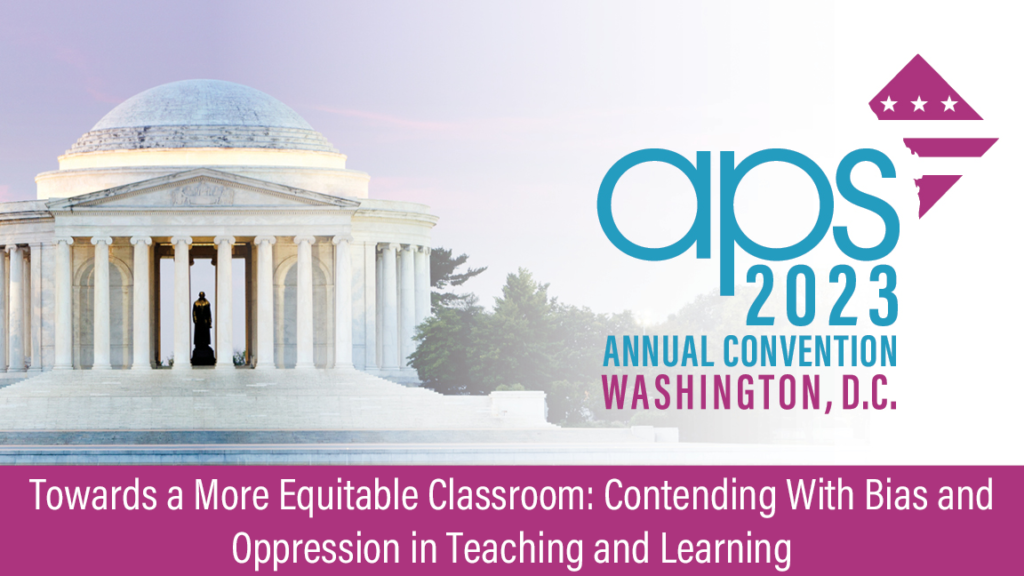APS-David Myers Distinguished Lecture on the Science and Craft of Teaching Psychological Science: Towards a More Equitable Classroom: Contending With Bias and Oppression in Teaching and Learning

Please log in to view this content. Note that this video is only available to those who registered for APS 2023 or APS members who purchase access.
Higher education strives to provide meritocratic opportunities for people of all backgrounds to pursue their academic and intellectual goals. However, research suggests that biases can undermine the fair treatment and evaluation of both teachers and instructors. Moss-Racusin draws upon evidence-based strategies and extensive personal experience to discuss how academic communities can cultivate socially-just learning environments.
Speaker:
Corinne A. Moss-Racusin, Skidmore College
ICPS 2023 Videos
-

Keynote Address: Integrating Knowledge in Psychological Science Using Ontologies
Susan Michie presents the “Behaviour Change Intervention Ontology,” which has the potential to dramatically enhance evidence integration and knowledge development using hybrid human-computer systems, thereby accelerating scientific advancements.
-

Keynote Address: The Human Quest for Fairness and Equality: Evolutionary Origins and Socio-Political Consequences
Ernst Fehr shows that individuals cluster around three global, fundamentally distinct, preference types characterized as altruistic, inequality averse, and predominantly selfish—with the selfish type typically comprising a minority of individuals.
-

Keynote Address: Blood, Sweat, and Tears: Human Social Chemosignaling in Health and Disease
Noam Sobel describes his findings on mechanisms of human chemosignaling in both health and disease. Based on these findings, he argues that, in contrast to common notions, humans are highly olfactory animals, and body-odors dominate our social behavior.





APS regularly opens certain online articles for discussion on our website. Effective February 2021, you must be a logged-in APS member to post comments. By posting a comment, you agree to our Community Guidelines and the display of your profile information, including your name and affiliation. Any opinions, findings, conclusions, or recommendations present in article comments are those of the writers and do not necessarily reflect the views of APS or the article’s author. For more information, please see our Community Guidelines.
Please login with your APS account to comment.